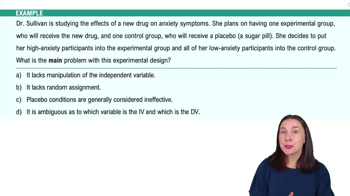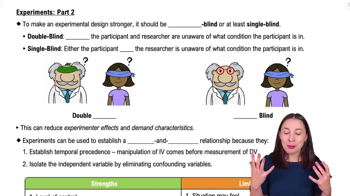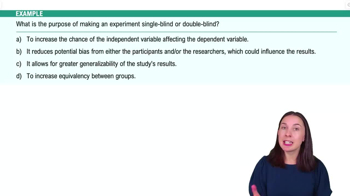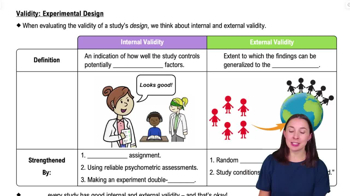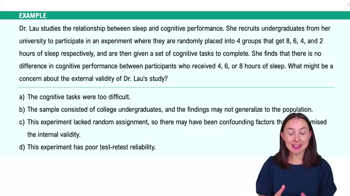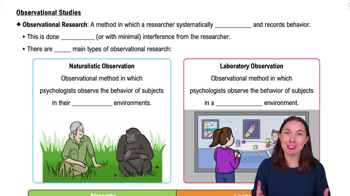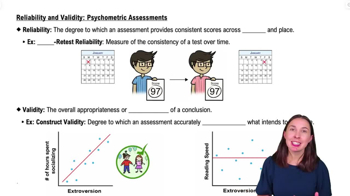Table of contents
- 1. Introduction to Psychology1h 43m
- 2. Psychology Research2h 20m
- 3. Biological Psychology2h 41m
- 4. Sensation and Perception28m
- 5. Consciousness and Sleep32m
- 6. Learning41m
- 7. Memory34m
- 8. Cognition37m
- 9. Emotion and Motivation35m
- 10. Developmental Psychology33m
- 11. Personality48m
- 12. Social Psychology41m
- 13. Stress and Health41m
- 14. Psychological Disorders44m
- 15. Treatment47m
2. Psychology Research
Intro to Research Methods
Struggling with Psychology?
Join thousands of students who trust us to help them ace their exams!Watch the first videoMultiple Choice
When psychological professionals conduct personality assessments, they
A
look for the single best theoretical viewpoint from which to treat the client.
B
generally use one form of assessment.
C
often look at the client's behavior from various theoretical perspectives to find the pieces of each that work for the client.
D
are then able to give a definitive diagnosis.
 Verified step by step guidance
Verified step by step guidance1
Understand that personality assessments in psychology are complex and multifaceted.
Recognize that psychological professionals often use multiple theoretical perspectives to gain a comprehensive understanding of a client's behavior.
Acknowledge that no single theoretical viewpoint is sufficient to address all aspects of a client's personality.
Consider that professionals integrate various perspectives to tailor their approach to the unique needs of the client.
Realize that the goal is not necessarily to provide a definitive diagnosis, but to find effective strategies that work for the client.

 1:46m
1:46mWatch next
Master Roadmap of the Lesson with a bite sized video explanation from Hannah Gordils
Start learningRelated Videos
Related Practice










